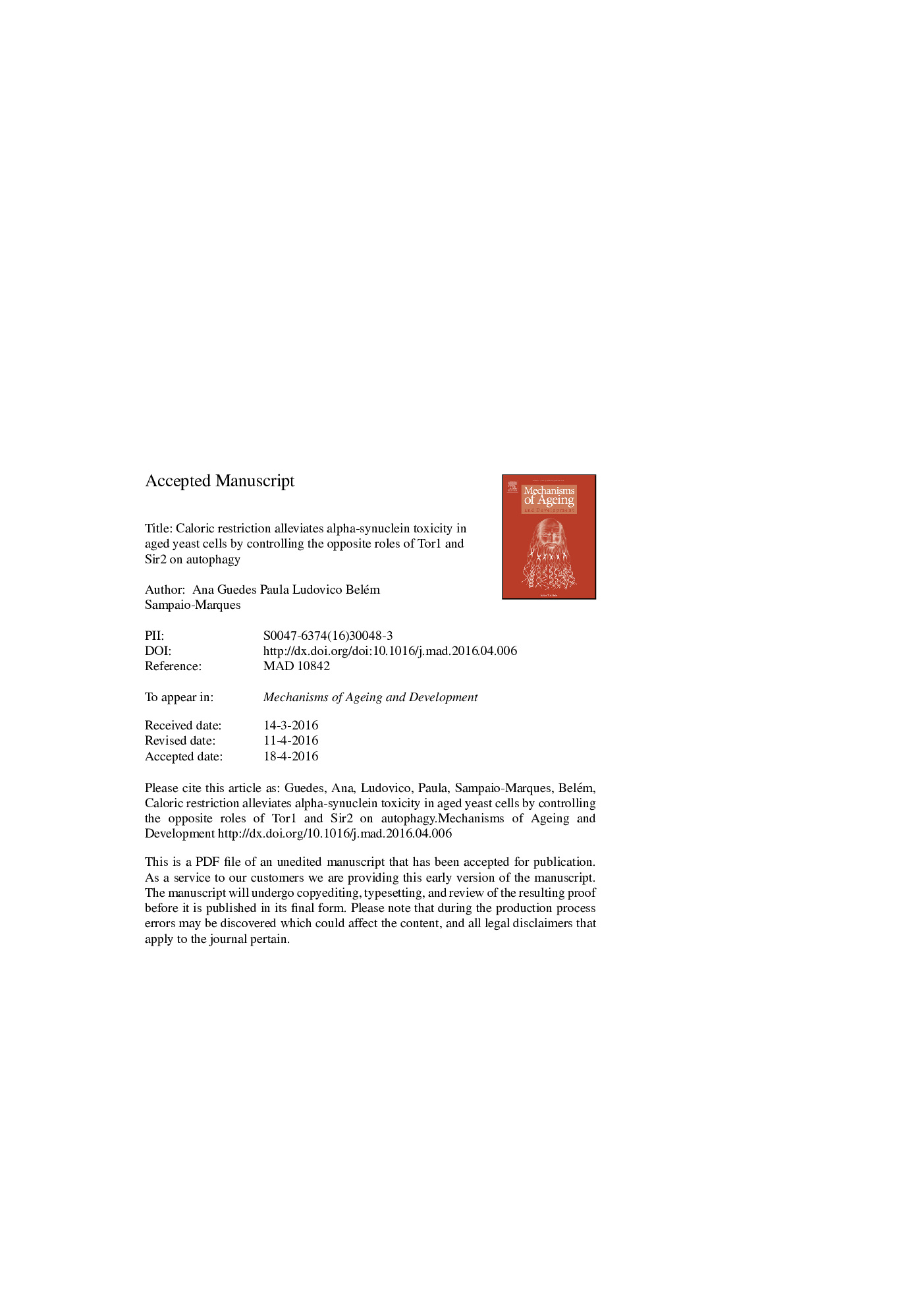| Article ID | Journal | Published Year | Pages | File Type |
|---|---|---|---|---|
| 5503640 | Mechanisms of Ageing and Development | 2017 | 34 Pages |
Abstract
Alpha-synuclein (syn) is the main component of proteinaceous inclusions known as Lewy bodies (LBs), which are implicated in the pathogenesis of the neurodegenerative diseases known as synucleinopathies, like Parkinson's disease (PD). Aging is a major risk factor for PD and thus, interventions that delay aging will have promising effects in PD and other synucleinopathies. Caloric restriction (CR) is the only non-genetic intervention shown to promote lifespan extension in several model organisms. CR has been shown to alleviate syn toxicity and herein we confirmed the same effect on the yeast model for synucleinopathies during chronological lifespan. The data gathered showed that TOR1 deletion also results in similar longevity extension and abrogation of syn toxicity. Intriguingly, these interventions were associated with decreased autophagy, which was maintained at homeostatic levels. Autophagy maintenance at homeostatic levels promoted by CR or TOR1 abrogation in syn-expressing cells was achieved by decreasing Sir2 levels and activity. Furthermore, the opposite function of Tor1 and Sir2 in autophagy is probably associated with the maintenance of autophagy activity at homeostatic levels, a central event linked to abrogation of syn toxicity promoted by CR.
Keywords
Related Topics
Life Sciences
Biochemistry, Genetics and Molecular Biology
Ageing
Authors
Ana Guedes, Paula Ludovico, Belém Sampaio-Marques,
